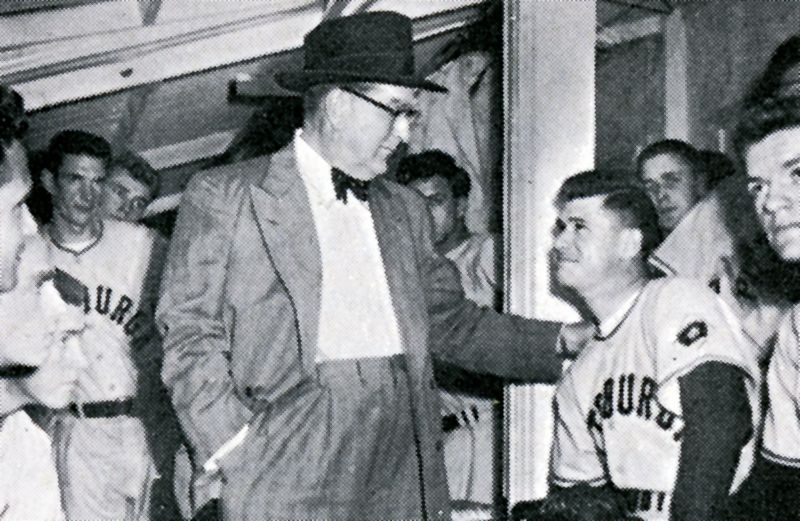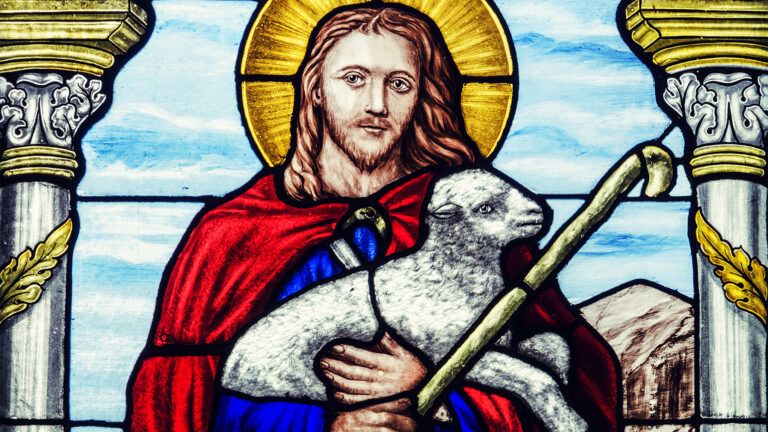Record my lament;
list my tears on your scroll—
are they not in your record?
Then my enemies will turn back
when I call for help.
By this I will know that God is for me.
—Psalm 56:8–9
It’s not the honor you take with you,
but the heritage you leave behind.
—Branch Rickey, Dodgers general manager who signed Jackie Robinson
As a player, Branch Rickey had a very forgettable major league career. In fact, he probably wished that more people would forget about the one major league record he set that still stands today: as a no-hit, no-field catcher with the New York Highlanders in 1907 (they became the Yankees in 1913), he once allowed 13 stolen bases in a single game.
But as a general manager in the front office, Rickey changed the face of the game in many ways. He was the first to develop the minor league clubs as a “farm system” for his major league club (at the time, the Cardinals). He developed the first full-time spring training facility (for the Dodgers) and was instrumental in making everyday use of things such as batting helmets and pitching machines. He helped found and fund the Fellowship of Christian Athletes in the 1950s. He put together the components of three different teams that went on to win the World Series (Cardinals, Dodgers and Pirates). And then, of course, he changed the face of baseball forever when he signed Jackie Robinson to a contract.
Some have suggested that Rickey was simply trying to find a way to attract even more fans to Dodger games, that his breaking of the so-called gentleman’s agreement to ban African Americans from major league baseball was simply a financial issue and not a noble cause. But Rickey was a man of outspoken faith, guided by his Christian upbringing and Methodist roots. His heart had been deeply moved by an episode in his life when he was a much younger man, coaching the Ohio Wesleyan University baseball team.
The team had taken a road trip to play Notre Dame in South Bend, Indiana. When they arrived to check into their rooms, the hotel manager said to Rickey, “I have rooms for all of you—except for him,” pointing to the team’s black catcher, Charley Thomas.
“Why don’t you have a room for him?” Rickey asked.
“Because our policy is whites only,” said the hotel manager.
After much discussion between the adamant innkeeper and the persistent Rickey, it was agreed that Charley Thomas could stay in Rickey’s room on a cot. After assigning the other players to their rooms, Rickey went up to his room to find Thomas sitting in a chair, weeping and pulling at the skin on his hands, crying out, “It’s my skin. If I could just tear it off, I’d be like everybody else. It’s my skin; it’s my skin, Mr. Rickey!”
That moment seared its way into Rickey’s conscience. He was so moved by the young man’s despondency and the injustice of his plight that he later said, “For 41 years I have heard that young man crying. Now, I am going to do something about it.” And he did. American historians often mark the day that Robinson signed a contract with Rickey and the Dodgers as a major date that helped galvanize the coming Civil Rights movement.
God hears our cries too, and does something about it. Our tears move God. In fact, Psalm 56 indicates that God writes it down when we cry. God has compassion on us, longs for justice for us, and remembers our plight.
Another translation of the Hebrew word behind “scroll” in Psalm 56:8 is “wineskin,” or in our vernacular, “bottle.” If you were to go inside a Middle Eastern tomb from biblical times, you would probably see collections of bottles that were used to collect the tears of mourners at funerals. These vials were then entombed with the loved one as symbols of honor and affection.
Someday, in heaven, God will wipe every tear from our eyes (Revelation 21:4), but until then, it’s a great comfort to know that God doesn’t view our pain and sorrow with indifference. Jesus himself wept (John 11:35), so he knows grief and sorrow up close. God is the heavenly statistician who records the tears that fall from your eyes and stores them in bottles. God misses no point of pain, forgets no moment of loneliness or depression, and records every teardrop caused by happiness or joy. When injustice has happened to you, you can be assured that God knows, cares and is for you.
Those hands that had attempted in vain to peel off skin of a different color later became the hands of a highly skilled dentist. Just as Branch Rickey remembered that young man’s great sorrow, Dr. Charles Thomas never forgot what Branch Rickey did for him. Years later, at Rickey’s funeral, the officiating minister said, “Branch Rickey has been called the master mind of baseball. His vision made him that. But, he was also the master heart of baseball…He made goodness attractive to others.” Isn’t that true of all heroes? Wouldn’t it be great if people could say that about you?
Intentional walk: God, sometimes I hold back my tears, thinking that it’s undignified or a sign of weakness to cry. But I remember today that Jesus cried, and he possessed more dignity and strength of character than any other human being. I know that you are for me, and that my prayers are marked “Special Delivery” when they arrive, bathed in tears, at your throne room. And as I cry out to you, remind me, “Those who sow in tears will reap with songs of joy” (Psalm 126:5).





